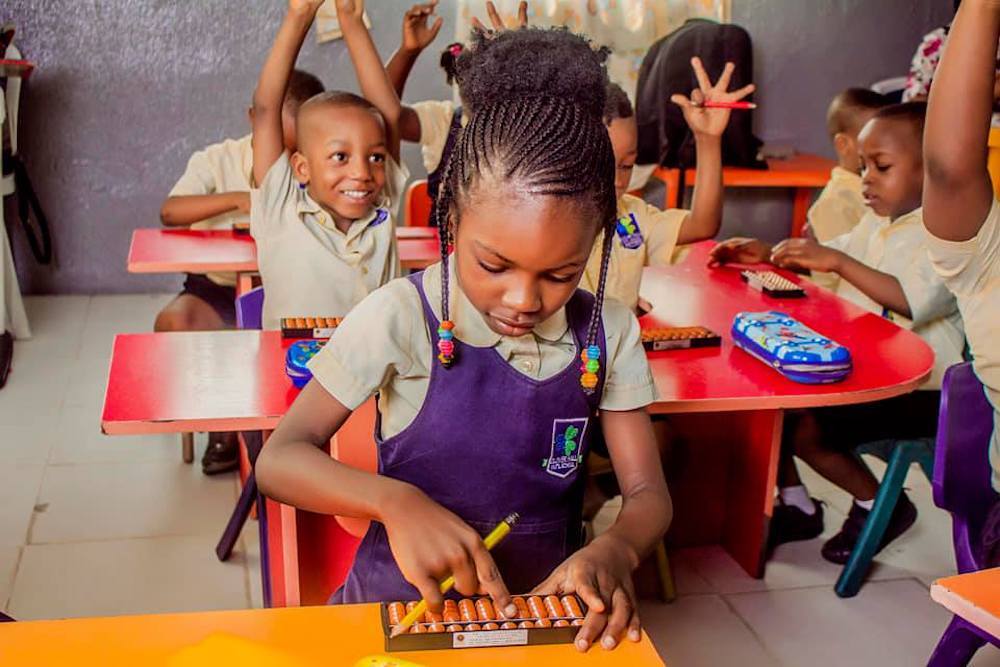
US aid cuts could harm education and anti-violence projects in Latin America
Safe schools
Withdrawal of funding will hit programmes that encourage young people to stay in in Guatemala, Honduras and El Salvador by making schools and their lives safer.
Jump to
Donald Trump is desperate to stop the flow of migrants leaving Central American countries for a new life in the United States.
The US President has made that clear many times – from his pledge to build a wall on the Mexican border to his comments about the caravans of people fleeing violence and economic crises.
But President Trump left many people bewildered when he announced that American aid will be cut off to three Central American nations – Guatemala, Honduras and El Salvador.
That’s because the move will drastically affect many education, violence-reduction and job-creation programmes aimed at helping children, adolescents and their families to stay in their own countries and communities.
Charities working in the so-called Northern Triangle of countries are scratching their heads at the decision.
“The people who are really going to get hurt by this are the people who are the region’s most vulnerable, including … teenagers trying to avoid the pressures of joining gangs and escape violence,” said David Ray, vice president of policy and advocacy at global charity CARE.
Theirworld’s report Safe Schools: The Hidden Crisis highlighted that many children and adolescents in Latin America live with the threat of violence – often gang-related – in their schools and on their streets.

It said: “In 2016 the rate of violent deaths in El Salvador and Honduras was second only to Syria
and greater than in Afghanistan and Iraq.
“In terms of homicides committed outside of warfare, 42 of the world’s 50 deadliest
cities for which data are available are in Latin America. Overall, the region – home to just
8% of the world’s population – is scene to a third of the world’s murders. Young people
are most affected, with half of all murder victims aged between 15 and 19.”
The report said that research in Guatemala has found that almost 60% of students are afraid to go to school. At least 23% of students and 30% of teachers said they or someone they know have been victims of gang violence as they have left or entered school.
The high levels of violence are a major reason why so many people are fleeing in the hope of a better and safer life elsewhere.
President Trump has accused the nations of failing to address migration. He said: “I’ve ended payments to Guatemala, to Honduras and El Salvador. No money goes there any more. We were paying them tremendous amounts of money and we’re not paying them any more because they haven’t done a thing for us.”
Few details have been made available about where the cuts will strike – but the State Department notified Congress it will divert about $450 million in aid from the region.
Rick Jones, senior advisor for charity Catholic Relief Services, said aid cuts will only fuel migration. One of its endangered projects provides training and jobs to more than 5,000 young people in poor and violence-torn communities in Honduras and El Salvador.
“Cutting off aid is morally wrong and is counterproductive,” he added. “It will undermine the gains that have been made in reducing violence and will spur more migration.”
Many programmes have been hugely successful in these countries. In El Salvador, the Supérate project has helped to keep children in or return them to primary school, especially in high crime areas. Primary school enrolment in the country rose from 76% in the 1990s to 93% in 2016.
Here we look at some of the programmes that could be hit by the US aid cuts.
Honduras
“Public education in Honduras is characterised by high dropout and repetition rates, and low achievement scores,” says USAID.
The United States’ international development agency is helping the education ministry to improve standards – but says “many primary school graduates are unable to continue their education because of a shortage of secondary school facilities”.
- CARSI School-Based Violence Prevention (Asegurando la Educación)
- Duration: 2017-22. Projected investment: $20.83 million
Works to prevent school-based violence by addressing behaviours and environments that impede access, retention and learning. USAID collaborates with public schools, the education ministry, civil society and others, with its support focused on five of Honduras’ most violent cities – Tegucigalpa, San Pedro Sula, Choloma, La Ceiba and Tela. The project forms alliances with
neighbourhood schools to support positive behaviour changes among at-risk students.
- Strengthening Teacher Professional Development Activity
- Duration: 2018-20. Projected investment: $4 million
Supports government efforts to transform the existing high school-level teacher training schools into teacher education and professional development centres. Helps would-be and existing teachers to update their knowledge and skills and take best practices into the classroom.
Guatemala
300,000 children were out of school in Guatemala in 2016 – a 62% increase from 2008, according to UNESCO. Theirworld’s Safe Schools report said: “Much of this poor attendance can be attributed to violence rooted in gangs that have grown and extended their influence across the country.”
More than two million youth between 15 and 24 do not have basic life or vocational skills to enter the workforce. This makes them more prone to be recruited by gangs.
- Community Roots Project (implemented by World Vision)
- Duration: 2016-21. Projected investment: $40 million
A programme to create educational, athletic, cultural and employment opportunities for youth in targeted communities. Working with the government, police and local authorities to support 80 community-based violence prevention projects, as well as developing migration prevention plans.
- Puentes Project (implemented by World Vision International)
- Duration: 2018-22. Projected investment: $65 million
Promotes educational opportunities and sustainable livelihoods for youth in the Western Highlands to reduce migration. Works closely with existing activities and implements new education programmes that identify and match local needs.
El Salvador
Only half of young people attend early secondary school (7th to 9th grades), and only half of those students go on to complete high school, according to USAID. In 2017, the education ministry renewed a commitment to address school violence and high dropout rates.
El Salvador has the highest homicide rate in the world for youth under the age of 19.
- Education and Coexistence for Schools and Communities Free of Violence (implemented by Fundación Empresarial para el Desarrollo Educativo)
- Duration: 2018-23. Projected investment: $10 million
Public-private partnership that provides psychosocial services to youth, parents, and teachers in up to 76 schools in high-risk communities – to help them overcome difficult experiences they face daily. The schools also offer after-school sports activities to help students develop life competencies and promote their well-being, develop life skills, improve their social spirit, improve their academic performance and keep them safe.
Education for Children and Youth – a US-funded project that ran from 2013 to 2018 – helped 23,000 out-of-school youth return to formal classes or earn an equivalent diploma in special weekend classes. It also improved teacher training and the educational results of lower secondary students.
More news

Theirworld’s mission to give children in crises a safe place to learn
